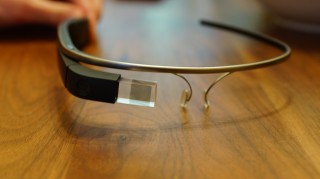Imagine this; a future where you have the convenience of strolling around museums, where with the flick of an eye you get every piece of information that is available on the planet about the arti-fact you are staring at. Or you are walking down the street, where you get this crush on this lady you know nothing about; but again with the flick of an eye, you can know her name, her relationship status and what you can do to impress her. Sounds preposterous ? No, its not ! Welcome to 21st century folks and particularly welcome to 2014 when with the unveiling of google glass, all this sounds extremely feasible and near.
Google Glass is basically nothing but a wearable computer with an optical head mounted display that is being developed by Google in the Project Glass reasearch and developement project with a mission of producing a mass-market ubiquitous computer. Google Glass displays information in a smartphone like hands-free format, that can communicate with the Internet via natural language voice commands.Although frames do not currently have lenses fitted to them, Google is currently trying to strike up partnerships with sunglass retailers like Ray-Ban. This is primarily meant to be operated either through touch sensors or voice commands.
But before we get ecstatic about this next-gen technology, we must pause and consider the possible criticisms this product is facing. Among the foremost concerns is the breach of privacy and secrecy, of photographing, searching or recording people without their permissions. We already know cameras are banned in many places currently and while it is easier to keep track of when you are using cameras, it would be immensely hard to do so with google glasses. Not only that, by inducing the wearer to take photo of ‘virus’ loaded pictures, it would become easy to hijack the operating systems of the users. Using this technology while driving, while appropriately being considered to be dubbed as reckless driving in UK, would be difficult to keep track of. Some critics have been audacious enough to point out that human-kind would never be ready enough to accept this.
But while Google Glass certainly appears magic to the average, non-tech savvy consumer, it is certainly the technology of future, something irreversible in the course of mankind’s pursuit towards creating smooth, convenient machines. As hardware and network pioneer Douglas Engelbart believed “should do what machines do best, thereby freeing up humans to do what they do best”

































